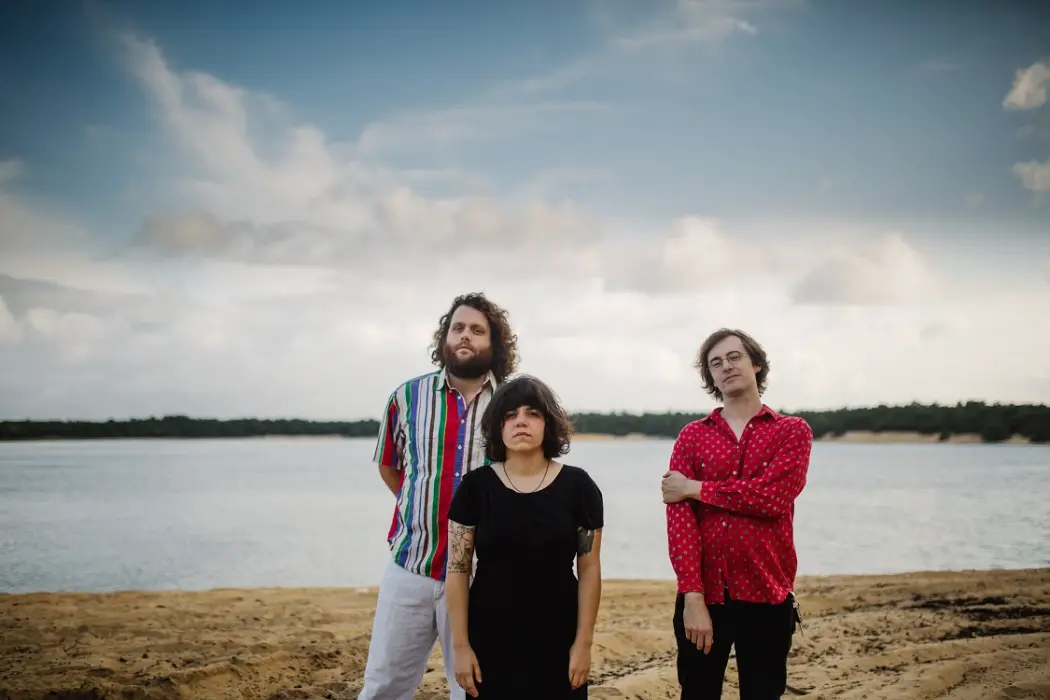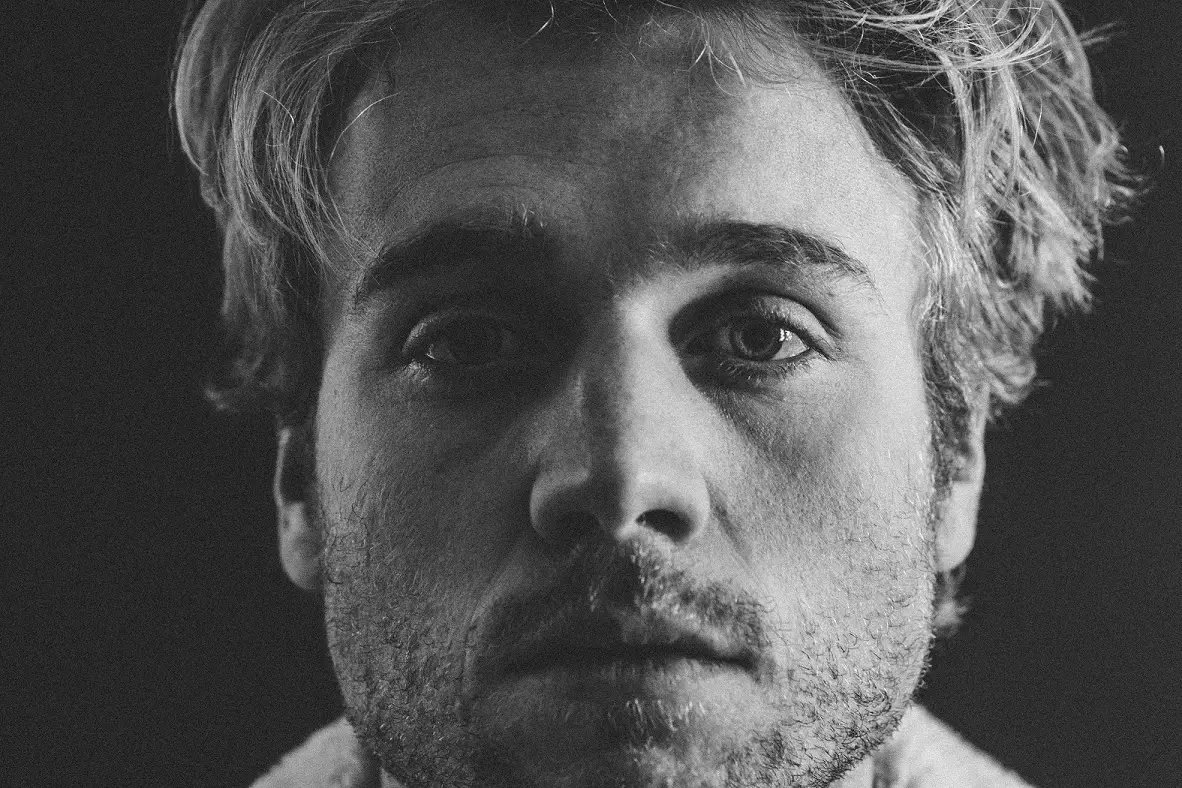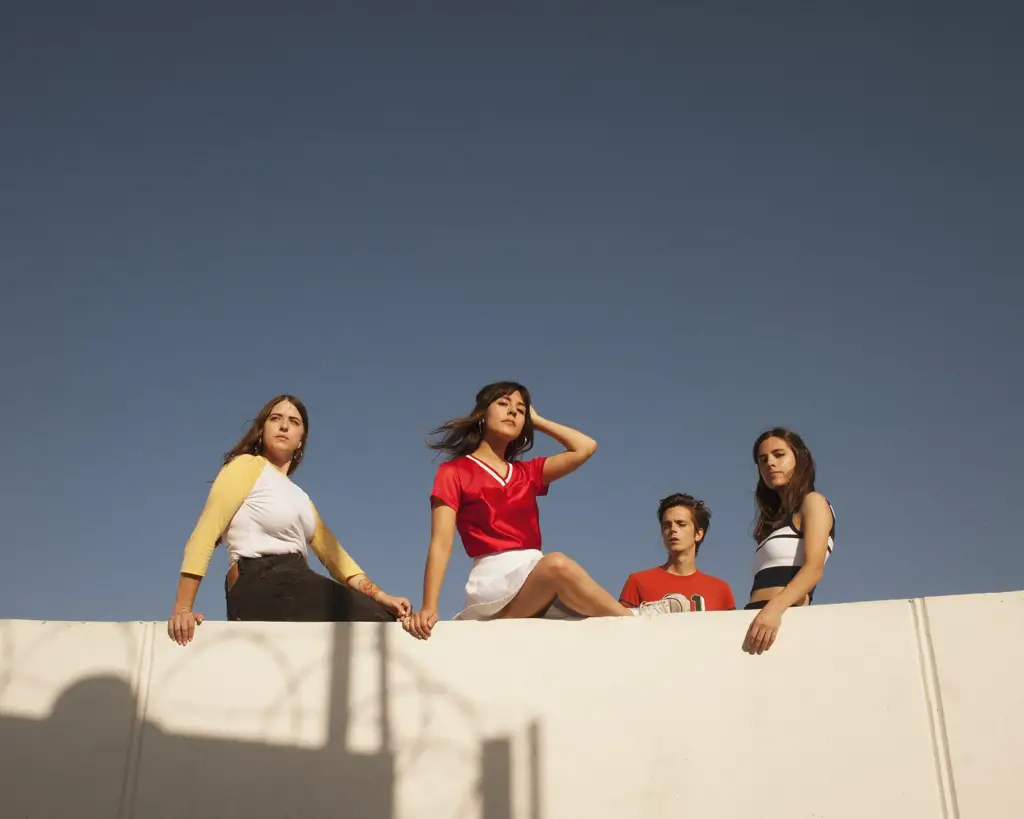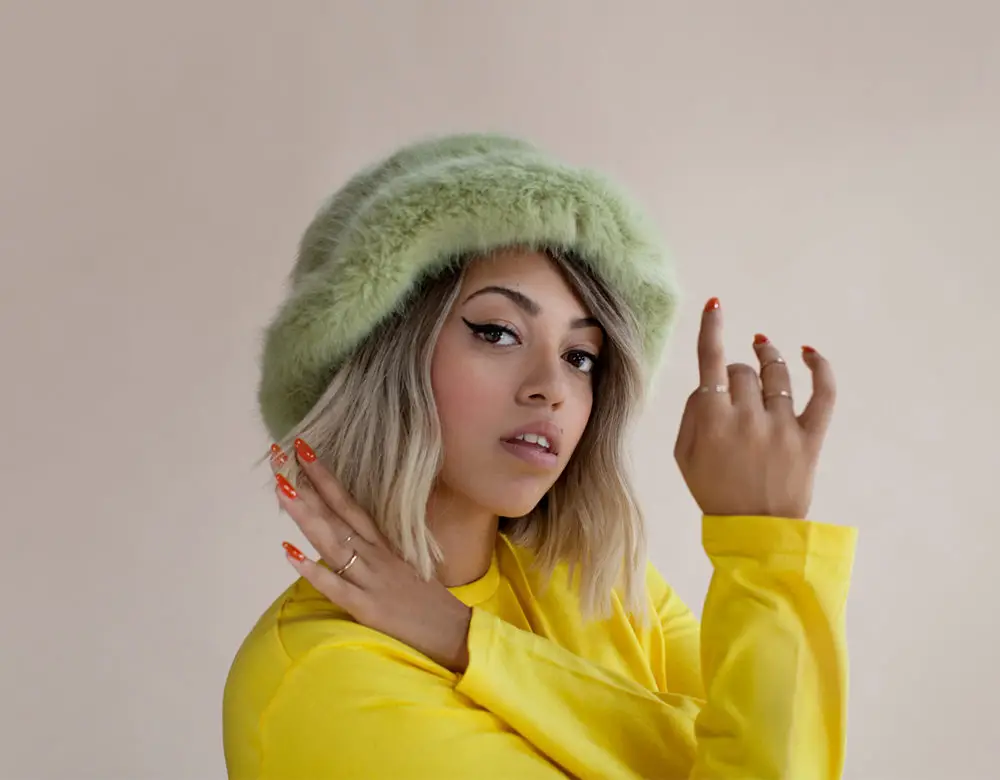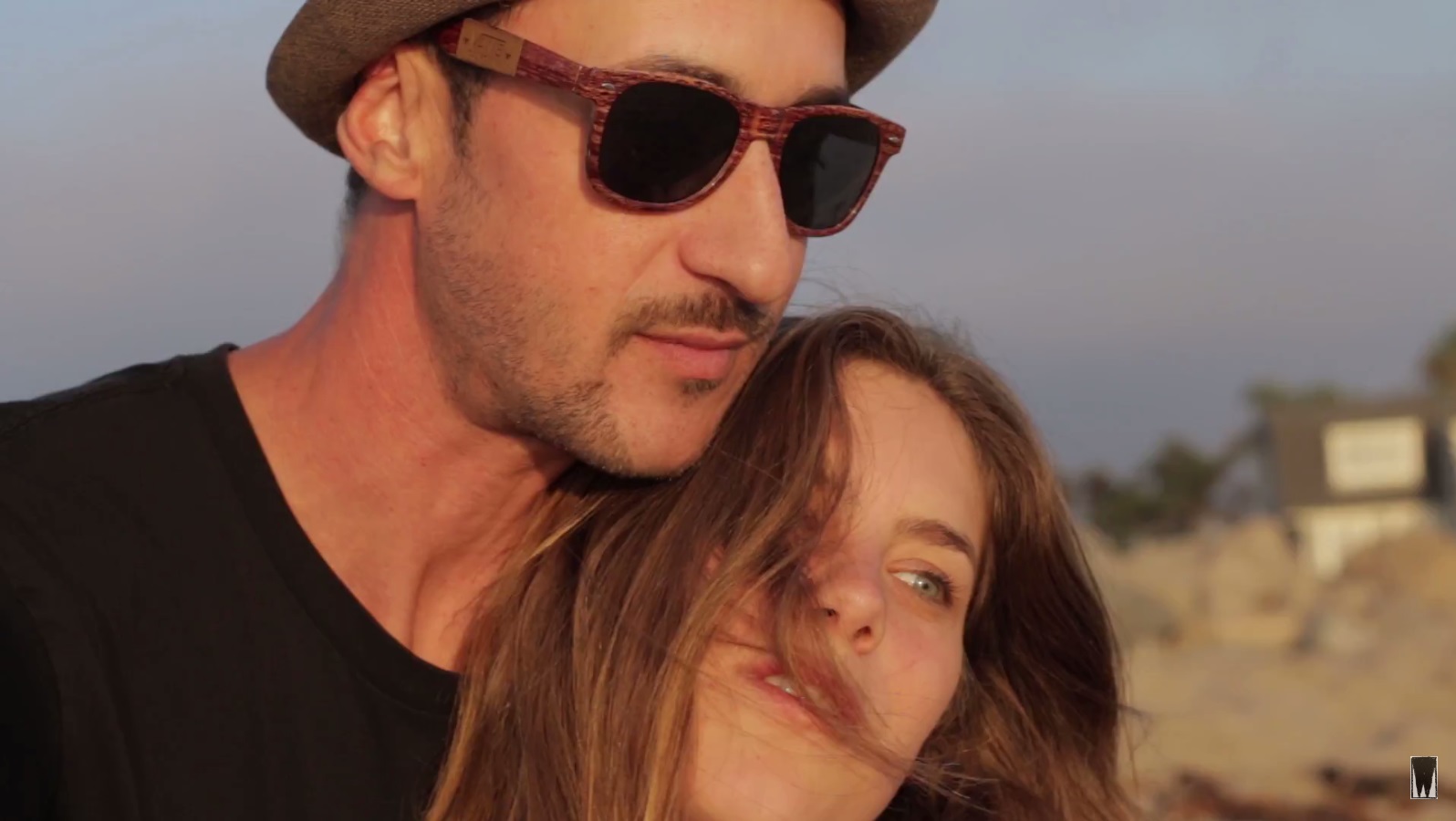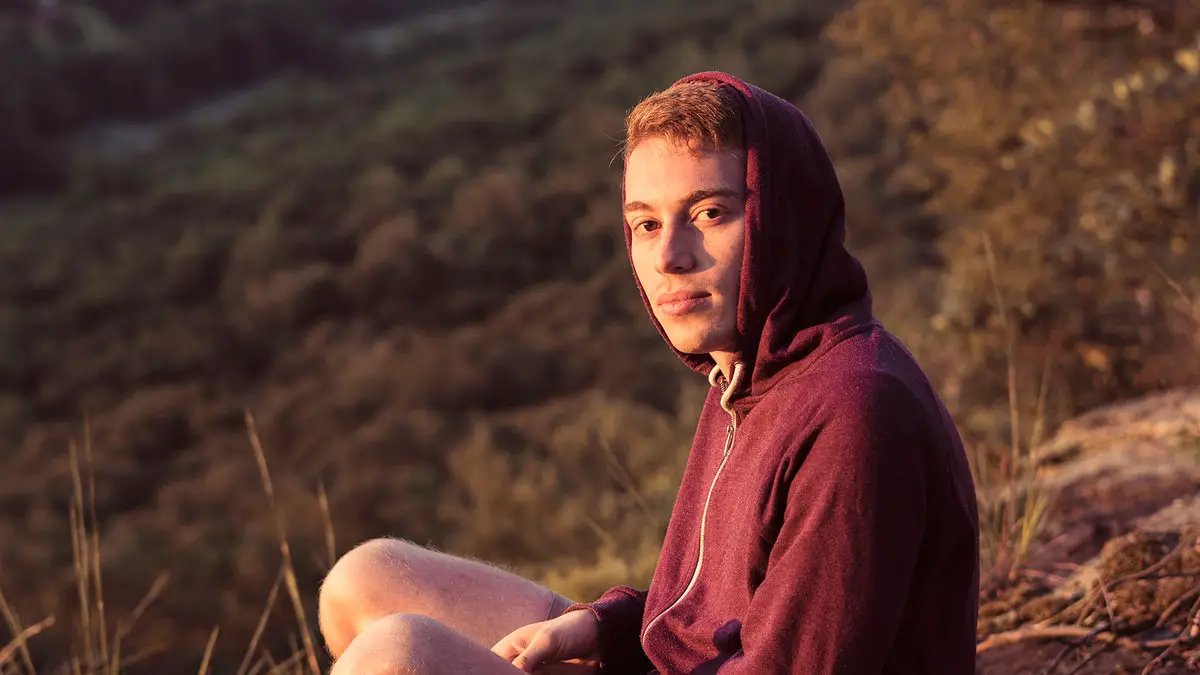Screaming Females’ Marissa Paternoster and Jarrett Dougherty discuss their new album All At Once, community, and New Jersey.
— —
When discussing the rise of DIY artists, Screaming Females cannot be left out of the conversation. Formed in 2005, the band consisting of Marissa Paternoster, Jarrett Dougherty, and King Mike have been a perfect example of a band that have sculpted their own path to being a leading band in the punk scene. Their most recent album All At Once (2/23/2018 via Don Giovanni Records) sees the band stepping into new territory further exploring what Screaming Females could be. Atwood Magazine got a chance to speak to Paternoster and Dougherty early in their 2018 tour.
Listen: All At Once – Screaming Females
A CONVERSATION WITH SCREAMING FEMALES
Atwood Magazine: Thanks for taking some time to chat with me today!
Jarrett Dougherty: Yeah, no problem, me and Marissa are going to pass [the phone] back and forth.
Oh, awesome. So, tonight is the second night of you guys' tour, correct?
Jarrett: That’s correct.
What songs are you guys most excited to play?
Jarrett: What songs am I most excited to play? I know we practice every week, the way we always do, but leading up to tour, we were really trying to focus on having a good range of songs available, that were new and ready to play. So I’m kind of excited about some of the old ones that we got ready to go, we’re doing … Marissa, what’s the name of that song off of Ugly that we learned? Slow Birth, is one off of our album Ugly, that we haven’t played live in probably five years.
And then of course I’m most excited about playing the new songs, and the few that we didn’t play during our record release show, and that we played last night, that should be coming out soon, like the two part song from our new album [“Chamber for Sleep”] that’s really exciting. It’s got a jammed out thing in the middle. So, I’m excited for those.
Awesome. What was the songwriting process like for All At Once? And how has it changed from when you guys started?
Jarrett: Our songwriting process for the most part is pretty similar, which is that the three of us get together, and we kind of just play music and see what happens. And as soon as each thing happens, we’ll kind of try to refine that idea and work off that. The other thing that happens is somebody will bring in an idea and be like, “I was kind of thinking of doing this kind of thing, or this kind of rhythm, or have this melody going in my head.”, and we’ll work from there. So, I’d say the vast majority of songs still came from that same place, but we’re open to writing songs in any way. So there’s a few songs that Marissa brings in from her that are more classically like singer-songwriter songs where there’s a verse and a chorus that she’s already written, and we just have to kind of arrange them. But for this album, for the first time Mike brought in a song in that same way, where he had a song that had a verse and a chorus and we just re-arranged it for a few notes to play, and there was also some experimentation for this one. I’m a little bit in to modular synths, and drum machines, and stuff, and Marissa and I have written a song sort of using that stuff, and then we started playing that at this recording session we were doing. And not even trying to reproduce it exactly or even really thinking about it, we were just having fun. It was late at night. And then a few weeks later I got a in email a version of that weird little jam that I forgotten that we did, that was us trying to play live a thing from a drum machine, and Marissa had written a vocal melody to it, and I was like, “Whoa, this is a song. I didn’t realize that we were writing a song. I thought we were just playing something at two o’clock in the morning.” So there’s a bunch of different ways that songs get written.
That's cool. So that pretty much hasn't changed a whole lot from when you guys started over 10 years ago?
Jarrett: Like I was saying, I think that the vast majority of the songs still come from the same place, but I’d say that we’d never taken a song that Marissa and I had previously written a thing on a drum machine and a synthesizer and turned it into a Screaming Females’ song. That’s not something that’s never happened before. It’s more of just that I think that we as musicians and songwriters are always open to doing new things, and we never put limits on what Screaming Females was or wasn’t as project. So it just means that if we encounter a new way to write a song, or if a song comes to us in different new way, we’re not going to say, “Oh, that’s outside of what we normally do.”
That's awesome. And this album, I did feel like you guys experimented a little bit more, and I thought it really kind of paid off very well.
Jarrett: Thank you.
You guys still keep everything mostly DIY, correct?
Jarrett: Yeah, we’re self-management and we always have been. We work with close friends to put out the records, we like to build really good relationships with all kinds of people that we work with. So there’s a network of people involved with what we do, but the tour we’re currently on is what myself, and we tour-manage ourselves ,and we do our own taxes. We don’t have an accountant. We do our mail order and Marissa does all the artwork. Yeah, we take care of a lot of our own stuff in-house.
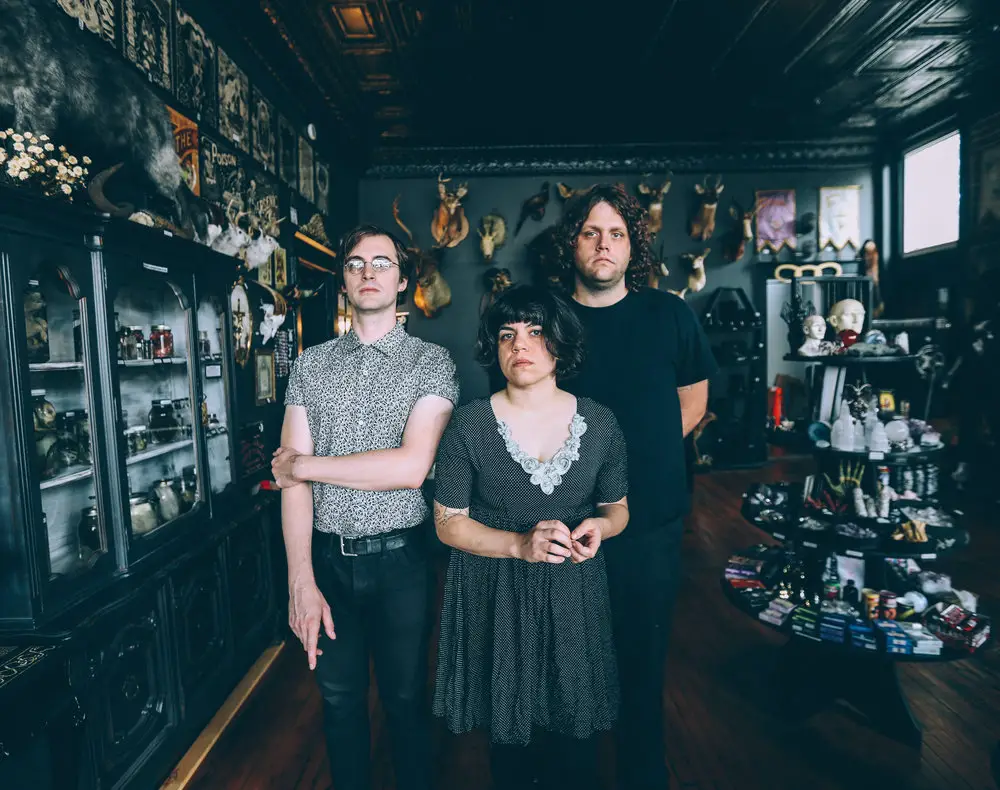
That's awesome. Do you think the internet has helped the DIY community build that, because I feel like it's grown so much from where it was even just 10 years ago?
Jarrett: I would say … That’s a complicated question. I would say that there’s certain people who have really … It probably saved their lives, the fact that they can connect to communities on the internet when they might be living in a physical community. The community that they have the physical location to, it may not be supportive of their identity or their interest or that type of thing. So I do not want to … and what I’m going to follow this up with negates that a really important thing in many peoples lives but I think that ultimately the Internet has not done good things for DIY and artistic communities. I think that when we first started playing there were tons and tons of bands and networks in place to play all over the country that were completely disconnected and had no concern for how they were portrayed in media. And it was really just about unity that you were building with your friends and people who you had close connections to, and now I feel like I encounter all the time young artists who rather than building that community and really learning to appreciate what you and your friends do because it’s something that you’re creating that no one else is doing there’s just so much more of a pressure on how many likes can you get, how many plays can you get, how many followers can you get, and that type of pressure is something that the community we were involved in, the DIY community we’re involved in, really isolated from.
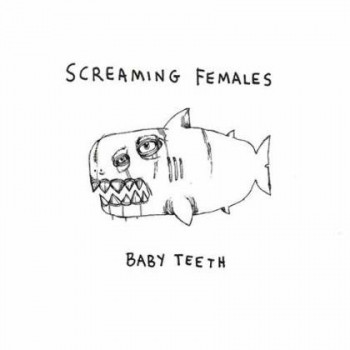
So we were able to create music because we liked what we were doing, and we were able to bring it to the world because there’s other people out there who were like even if I don’t love what Screaming Females is doing I appreciate that they’re doing it themselves, and I will put on a show at the cafe in my town or at my house or whatever. Whereas now a lot of bands, if their first thing they put up on Bandcamp isn’t getting enough plays, they think that they’re ruined before they even left town or they think that they need a manager, and a booking agent, and a lawyer, and a record deal before they can hit the road or try to make fans or find people who do appreciate what they’re doing or even just develop their sound.
I think that our first album Baby Teeth is one of the proudest moments of my life, the first time I listened to the mix of that record. But if that was the first thing that came out widely to the world [sharing] what Screaming Females was, I think that would’ve been wrong for that record. That record was supposed to get to 150 people like it did, by us bringing in a couple two-week tours. So I’d say that’s that pressure on the Internet and that idea of this kind of internet fame and if the potential is there to become famous on the internet, get a record deal, all these things, we’re just so unconcerned with that, that I think it really built a diverse motivated community that wasn’t built around fame or success in the same way that we that the rest of society deem things to be successful, which is now the kind of the theme, a goal post that I think a lot of very small independent artists are aiming at that.
And it is sort of an interesting dichotomy, like you said, isn't so much people necessarily just focusing on music but-
Jarrett: And community was the most important part of it for me. We didn’t go out and play 400 self-booked shows without a record label over the course of 4 or 5 years because we thought it would be a springboard to something else. We did that because that’s what life was. We were making really meaningful relationships that we still have to this day and playing for real people in the real world. Growing up in suburban New Jersey where we were taught that the angle of life is to have a slightly bigger split level house and a manicured lawn, to be able to go out and find punks, and independent artists, and just not the noise people and the hardcore kids and the metal heads and in every nook and cranny of the United States in towns that you didn’t even notice existed that it was just that if the scene like suddenly I’d woken up and life was real whereas before it had just been some sort of weird somebody else’s dream that I was forced into.
Kind of going in a separate direction. I loved the “Glass House” video specifically, and I also liked the other video you did for this album. How involved are you guys in that? Does a directors pitch that you or do you go in and say this is what we want?
Jarrett: I answer to the first part of this a little bit and then I’ll hand it off to Marissa. For “I’ll Make You Sorry” that one was directed by Lance Bangs. He’s a friend of ours. He’s a very accomplished director across multiple formats: documentaries, kind of bizarre prank things like Jackass, that he worked on but then also a lot of music videos as well. So he has a crew of people that he’s able to work with, and we feel honored that he’s willing to make the time to work with us because he doesn’t need to work with Screaming Females. His TV sort of outpaces us for sure. But that being said, on both “Glass House” and “I’ll Make You Sorry,” Marissa was really the one who did a lot of the work to make those videos happen… Especially “Glass House,” which was entirely Marissa’s idea initially, and then Mike and I had some input about where we could go with the kind of creepy vibe of the setting of it. But then we had our friend Kate Sweeney help us actualize it, but Marissa can say about her inspiration for doing the “Glass House” video.
Marissa Paternoster: It’s not the most interesting story. I know we were pressed to have some kind of concept for a video and no one had really come up for anything that we felt strongly about yet. And so I live with … one of my roommates is a professional grip and we were talking about one of our friends who’s a stuntman and I think he might have worked on a movie … I think he worked on the Borne Ultimatum or something and we were talking about all of the crazy stunts that he watched at work. And then somehow we got into talking just being a stuntman and started talking about prop glass. And when I was sitting alone in my room trying to figure out an idea for the video I just made that really superficial connection between prop glass and the title of the song. You gotta start somewhere right? So that’s kind of it. I haven’t actually really conceptualized the video far beyond that. I knew that we didn’t want it to have any kind of linear narrative and just kind of be an aesthetically driven kind of piece. A lot of our videos have these really complex narratives, and I was just like, “I don’t need to do that anymore.” If it seemed like something we’d done kind of just ask them, we could just kind of do something that was really visually engaging and I think that’s what where Kate really just did a great job because she showed up and made exactly. It’s like 90% of it was just Kate sort of like fixing lights and thing so that everything was just how we would like it and it came out great and we were flying by the seat of our pants. I’m very please with it.
Awesome. And what can you tell me about the album cover for All At Once? Because I know you do all the album covers also.
Marissa: Yeah, I started initially doing the same thing a lot of the same thing with all these little frames that I started making them out of selfie, which is this is craft place where you draw. I was just like, “Oh maybe I shouldn’t another painting or another drawing all of our albums are either paintings or drawings.”. So I was like, “Maybe I’ll take a photograph of something that’s three-dimensional or sculpture,”, or whatever you want to call it. And I spent like a month working on these things, and they just didn’t look right so I just started … I was like, “Well I should probably revisit a medium that I’m more comfortable with.” So I just kind of without too much preparation sat down and drew some pictures and then …When we were making the album or just more when we were writing the songs or starting finish up … just figure out what’s the batch of songs that we wanted to bring to the studio there were some songs that were kind of shorter than what Screaming Females is typically prone to doing. And then there were some songs that were “Screaming Females-like” or have all those components that our songs have historically had. And so I was just thinking a lot about the album visually and how it was almost as if they were all paintings, and there were larger pieces, smaller pieces, that they were all part of this one big whole. And so starting on the cover of the album is a pretty basic visual interpretation of that kind of web of elements all coming together to make one big thing.
Yeah. That makes sense. So, you guys just wrapped three shows in Jersey City at Mounty Hall. How do you remain connected to the Jersey scene even though you've been at this for so long?
Marissa: Mike still lives in New Jersey and he and his girlfriendjust started a label called State Champion Records and they’ve been putting out New Jersey and New York-based stuff, and playing on shows and going to shows in New Jersey. I been to those shows, like listening to those bands and that they’ve been putting out, and becoming friends with those people so that’s a pretty easy way to stay connected to the New Jersey scene is to just go to shows in New Jersey. And then we practiced there every week I lived there until I was 26 years old or 27 or something and most my friends are from New Jersey a lot of them happen to live in Philadelphia now, but it’s pretty easy to stay connected to New Jersey because I only live 10 miles away from the border and I’m there every week.
So I read in an interview how important activism and equality are to you, and I actually think you spoke very eloquently on it. What are some of the causes you and the band support, and how do you think other bands can be active in the community and national conversations?
Jarrett: Whoa. That’s a big question. So causes that we support… That’s such a difficult question. I would say that off the top of my head that I’ve seen in Philadelphia that are really inspiring are the new sanctuary movement and Juntos, which are both community-led organizations that are fighting for immigrant rights in Philadelphia and really creating broad coalition through you know religious groups, and clergy, and business owners, and through the council, and they’ve really done an amazing job of not pitting people against each other. The whole idea being that there’s these various interpretations of what makes a good life, and how life should be led is there’s this idea of community and this commonality of being human, which the bureaucracy of the state, especially our current state seems to refute. So, I think that those groups are doing a really amazing job and a big part of why they’re doing an amazing job is because it’s not outside groups trying to figure out what to do for the undocumented Asian community in Philadelphia. It’s people from the Vietnamese community in Philadelphia figuring out what needs to happen for them and building these coalitions or people from obviously the undocumented Latino community or families that have people of different statuses. There the ones building these networks that like Juntos has done such an amazing job it takes a lot to build trust with communities that have to be out and the necessity to have to be very watchful and not trustful of a lot of people around.
So, that’s some causes that I support literally just off the top of my head. Things like obviously planned parenthood giving people bodily autonomy is like a really really just …it sometimes is a basic understanding of what freedom is. The reason that we as humans as a society kill or imprison people is to take away their simple right to do what they want with their body whether it be to live or move it around. It’s just a simple thing. So saying something like, “You’re not allowed to do this with your body.”, is one of the most fundamental ways to take away someone’s from freedom. But going back to Juntos, the reason I brought that up off the top of my head is because how is Screaming Females going to affect the national conversation is a big … it’s just too egotistical of us to say that we truly affect some sort of national conversation. I think there’s other people who better positioned and have the resources to do that and that we support some of those things. But what I think gets forgotten, and this kind of goes back to what I was saying about the current Internet community or whatever. Something that gets forgotten that conversation is really living out and having struggles on a level that you really can have affective change. And, for me, that means that when I was working in a cafe where no one there ever really gets paid below minimum wage I got everybody and we issued a letter to the owner of a business saying that we deserve to get more money and here’s the reasons why, and here’s why we thought at what time line that we thought would be fair for that, understanding that it’s tough to run a small business and no one would want to be the person that had to send that letter. So I was like, “I’ll do it.”. And I think that having Screaming Females as such a consistent income in my life it’s positioned me in a way that a lot of other people who are working there if they had lost that job wouldn’t have had a lot of backup. So I was like, “This is a position that I from where I am, the way I’m positioned, I can do something to really help make this happen.” So how does that translate to a national cause? Maybe you could get a couple people together and take on the National Restaurant Association. That’s something that’s really difficult and that I don’t think that I personally have the influence to make that happen, but I can tell my boss that they should be paying me more. So for Screaming Females in the world of music that we exist in we have a lot of behind the scenes where we really push back on a lot of norms that I think are detrimental artists and are really put in place to serve the people that are able to make money off of artists. There’s a lot of that keeps artists in the dark purgatory so that they believe they can’t do things like manage themselves, or they can’t book their own tour. And that means that when we go out and I try to book shows for us we might not be offered the same deal that a professional paid booking agent coming from a well-respected agency might be able to put their muscle to it and get more money out of it. But the mere fact there is artist of our level booking themselves means that promoters are going to have to pay attention when they get emails from artists that are not on a booking agency. They just look through their 2000 emails every day to look for the biggest booking agency and just fill their calendar with that stuff they’re going to miss out on Screaming Females show. We’re selling out shows on this tour. So how does that activism… is that even activism? I don’t know but to me it feels really really important, and it feels like something that I can make a difference. And I think that that’s why we really like to build long term relationships with the people we work with. Because we want to have really good relationships that aren’t just built off of who can make the most money off of who and how quickly, who can push their way as a single person that thinks they’re the most important hottest shit in the world and get the most likes that they can get. Instead, we can build a web that can be sustaining and really support independent artists and vision outside of that. I don’t know if that’s activism but that’s something that I feel like it’s a place that we can effect change.
That's awesome. Last question I have for you both. What do you hope people take away from the new record or are seeing Screaming Females live?
Jarrett: What I hope people take away from seeing us is just the same thing that any artist hopes is just that there’s some sort of translation of motion in a way that you can’t exchange on any other sort of media or with words or anything way that just is purely a communication if it only happens through music. And I hope when people come see us live versus the record that it’s a different experience because I think that forum allows for there to be a different moment and there’s … if we went a played live and just tried to play the record exactly the way it was recorded then I don’t really understand why people wouldn’t just sit home and listen to the record. So we always had to bring something different to our live shows and that means that every night is something new for us and that’s really important for us as a band because they think that the energy and excitement that that little bit of unknown creates translates to the audience as well.
Marissa: Well for that album I just want that … just like they enjoy it as a fan of music. And then maybe you enjoy it as a fan of music or you can find bits and pieces of the music maybe that’s probably lyrically relatable to you or make you feel some kind of form of catharsis or maybe experience some kind of therapeutic value, that would be lovely, and that’s what music has done for me my entire life. And then if you come to the show it’s just to have spent that one night enjoying themselves however that may be. Enjoying the music sometime outside in the world with other people. Yeah. Pretty simple stuff.
Awesome, all right! Thank you so much for taking the time to chat with us.
— —
:: stream/purchase All At Once here ::
— — — —
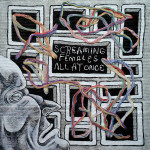
Connect to Screaming Females on
Facebook, Twitter, Instagram
Discover new music on Atwood Magazine
? © Grace Winter

